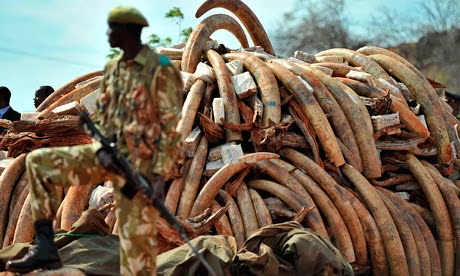As talks to negotiate a new trade agreement between the two countries heat up, the United States wants Kenya to enforce stricter laws protecting the environment and conserving natural resources.
The US is requesting more commitments from Kenya to fortify environmental protection laws and regulations, with a particular emphasis on natural resource conservation, in the third and most recent set of proposed texts in the targeted trade agreement.
“The proposed text includes provisions to address air quality, marine litter, and plastic pollution, to combat wildlife trafficking, to promote sustainable forest management, to conserve marine species, and to prevent the loss of biodiversity,” the office of the US Trade Representative wrote in the summary of its proposals on environment chapter.
“The proposed text also includes provisions on fisheries-related matters, such as addressing illegal, unreported, and unregulated fishing and fisheries subsidies that contribute to overfishing and overcapacity.”
In the aftermath of Washington’s introduction of additional texts on combating wildlife trafficking, reducing pollution, and tackling unregulated fishing, the teams negotiating a new trade agreement between Kenya and the US will hear opinions from interested parties.
Groups and individuals will have the chance to offer their opinions on the controversial sections of the proposed US-Kenya Strategic Trade and Investment Partnership during the virtual public engagement event. This has happened during a period of protests by some lobby groups about the Kenyan side’s lack of openness and public involvement.
Lobbies in the agriculture sector such as Kenya Small Scale Farmers Forum and Poultry Breeders Association of Kenya (PBAK) have publicly complained to Kenya’s Trade Ministry for failing to disclose draft texts they have tabled before their American counterparts.
The Trade Department has cited a “confidentiality agreement” with the American negotiators for not sharing the draft text, according to the groups.
“It is inconceivable that draft texts with far-reaching sectoral and economy-wide ramifications can be deemed confidential and hence deny industry players the opportunity to promote and protect their interests during the text-based negotiations,” PBAK wrote in a memorandum to Trade Principal Secretary Alfred K’Ombudo.
Conversely, Washington has been using the USTR’s office to release a synopsis of the texts they are negotiating with Kenya. Between August and September of 2022, the agency solicited public opinions on the planned agreement with Kenya from American stakeholders.
Following their discussions in Washington last month, the negotiating teams are gathering in Mombasa this week for their sixth round of negotiations.
The sixth round of negotiations will centre on advancing and supporting climate change and environmental goals, supporting workers’ rights, improving customs process efficiency, and cooperating on enforcement.

